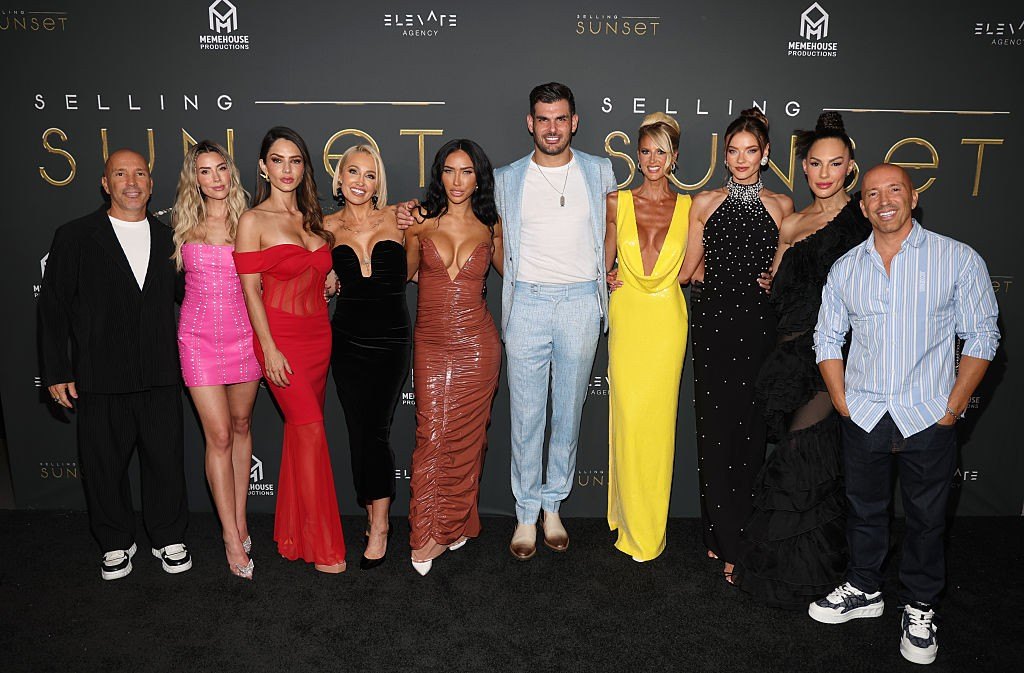Ask any reality TV fanatic to name a real estate agent and it’s likely that they’ll be able to rattle off a huge number of names—from “Selling Sunset” star Jason Oppenheim to “Owning Manhattan” mogul Ryan Serhant.
In the past two decades, the high-powered world of luxury real estate has been transformed into binge-worthy dramas that have captivated millions of viewers, providing a glitzy glimpse into an industry that is now being flooded with budding brokers and agents eager to get a taste of that glamorous lifestyle.
Add to that a recent wave of celebrities who have now turned their hand to property sales, including the likes of “Bachelorette” star Tyler Cameron and “Girls Next Door” alum Kendra Wilkinson, and it seems that real estate is ready to rival Hollywood for A-list appeal.
These trends have turned a glaring spotlight on the industry—and given it a glittering sheen rarely found in the world of gritty reality TV.
But behind the scenes, those who have been working their way up the property ladder for years say the reality is far less glamorous, warning of long hours, fierce competition, and unyielding pressure, aspects of the industry that many newcomers seem blissfully unaware of.
The result, they explain, is an influx of budding agents who enter into their new roles expecting the kind of Champagne-fueled open houses and star-studded events depicted on shows like “Selling Sunset,” “Owning Manhattan,” and “Selling the City,” only to be met with a much more brutal scenario.
It is a reality that seasoned agents and brokers know only too well and is marked by years of burnout, financial setbacks, and deals that fall apart before the cameras even start rolling.

While many have earned their own celebrity status as a result of these reality TV shows, they want to warn others who are entering the industry under false pretenses to be better prepared for what to expect.
Luxury real estate agent and “Owning Manhattan” star Tricia Lee is one such expert, telling Realtor.com® that what you see on screen is just a tiny slice of life in the industry’s fast lane.
“1,000%, I believe that reality TV has made real estate sales very trendy, glamorous, and achievable. No one will ever tell you the many skills it takes to actually do the job or all of the facets of these deals that need to come together for things to actually get done,” she said.
Lee went on to note that the hit shows, while entertaining, make the career path look easy, insisting that being a real estate agent isn’t “for the weak.”
“Real estate will always look easy, doable, and overpaid, which is so ironic because we do so much work that we never get paid for and the success ratio is probably as low as it can be,” she added.
“I read a quote that 90% of new agent licenses in NYC never get renewed. Sounds about right. This isn’t for the weak. I’m not even convinced it’s for the sane.”
And, although Lee doesn’t believe that these TV shows set out to make real estate look attainable to the everyday person, she admits that is exactly what has happened.
“I actually don’t believe that shows intend to create these unrealistic expectations, it’s just what happens every single time. Listen, this job is finance, it’s architecture, property management, and sales. This is skilled negotiations, it’s critical thinking at the highest levels, event planning, problem solving, marketing, and now media,” she said.
“Shows that share the lives and work of successful agents don’t necessarily share what it took to get there, to make it onto TV. Well, not until you get to know the agents,” she explained.
“No one talks about the immense level of work, tenacity, charisma, and impact one has to even have to make it onto a show, oftentimes after already establishing a successful career. I can only tell you this. Everyone making money is working hard and smart to do so,” Lee emphasized.


And, Lee isn’t the only real estate pro that feels like Hollywood has deceived budding agents.
“Selling the City” star Eleonora Srugo previously told Realtor.com that the industry is not as easy as it looks—and it’s even harder when you are managing a team of real estate agents that double as TV pros.
“I’m not going to lie—it’s been difficult to manage the team because a lot of it is managing how they respond to being busy, overwhelmed, or even getting attention, and it really does show you people’s strengths and weaknesses.
“There have been some things that have been more challenging than others, and I have to manage a team of women. I’m not just managing their real estate careers; but I have a factor of a show in there, so I have to manage a certain level of ego that has to be dealt with.
“Real estate is not an industry that takes off quickly. Sometimes you can get lucky on your first deal. Your first year, you just need to learn and get major comprehension for the industry,” Srugo said.
Meanwhile, Leonard Steinberg, chief evangelist of Compass, made no secret of his dislike of real estate-focused reality series while speaking at The Real Deal’s New York City Forum alongside Srugo.
During a discussion about the huge surge in the number of reality TV series that focus on the many facets of real estate, Steinberg and Srugo got into a heated debate about the true impact that Hollywood has had on the industry.
The divisive conversation saw Steinberg branding real estate reality shows as “cheap content,” claiming that the production of these series has caused a “terrible shift,” especially when it comes to the professionalism of those working within the industry.
“Reality TV has made star agents out of agents who would have been mediocre. You are selling the world an inadequate image. I find that it is damaging for the other people in the industry, and it’s selfish,” he said.
Steinberg also hit out at the glamorous portrayal of many of the agents who appear on reality TV, claiming that it has led many, particularly women, to believe that they have to look “a certain way” in order to succeed.


“I just feel bad for the many female agents because they were never given the platform that was afforded to you,” he told Srugo.
“If I was a woman I would feel extremely disappointed in it because it over-sexualizes the role of a professional.”
However, Srugo insisted that her TV show, which debuted in January and focuses on a team of eight real estate agents working for Douglas Elliman, has only helped to further the careers of those who really deserve success, adding that she “fought” hard for the series to follow the format she’d always envisioned.
“This was the production company I wanted and the network I wanted. I was happy to represent the city [because] I take a lot of pride in being from the city. What makes reality TV successful is when you focus on a different part of society,” she said.
Furthermore, Srugo insisted that “self-promotion” is a vital part of working in real estate and added that reality TV simply serves as another way for agents to get noticed and get business.
“You have to do [these things], you have to put yourself out there. I worked very hard to get that opportunity. It’s all about self-promotion,” she went on.
Steinberg conceded that reality TV shows have been an “outstanding source of PR” but insisted that they create a skewed view of the real estate industry as a whole, calling for all shows that highlight different brokerages or agents to come with a disclaimer of sorts.
“Although the shows offer an outstanding source of PR, they show very bad behavior and it creates a perception that this profession is so quick and easy,” he said.
“I want a disclaimer line that says, ‘What you are about to see is fiction.’ I just want a disclaimer.”


As their discussion drew to an end, Steinberg also highlighted another pet peeve about reality TV: The fact that those who star on screen often receive more attention and business than those who don’t, suggesting that Srugo has benefited unfairly from her “celebrity” status.
“Reality TV has made heroes and celebrities, so Eleonora is a celebrity now and a celebrity is what gets prioritized because Eleonora will bring in the crowd,” he said.
Although the first reality TV show revolving around real estate, “Million Dollar Listing,” aired in 2006, it wasn’t until “Selling Sunset” premiered in 2019 that the industry blew up—and was quickly flooded with eager applicants trying to shoulder their way into real estate careers.
Between 2019 and 2020, there was a 26% rise in the number of real estate agents in the industry, a trend that has been attributed to the increased popularity of those same TV shows—as well as the COVID-19 pandemic, which prompted many to reexamine their careers.
In 2020, the number of agents skyrocketed 82%, bringing the total to 1,559,537 as of Dec. 31, 2021, per RealTrends Verified.
While that number now sits at 1.4 million, there are many who believe there are still too many agents to deal with the amount of inventory on the market—leading to extraordinary levels of competition that could well make it impossible for some to make ends meet, according to Baylor Lariat.
Currently, the trend is showing no signs of slowing down and with networks and streaming giants like Netflix and HGTV pouring more and more money into real estate-focused reality TV, it seems the glittering glamour of the industry is going nowhere anytime soon.
Miami market relevance
If this topic impacts buyers or sellers, the most useful context is what is happening locally. Track current pricing, inventory, and days on market in Miami, and compare active listings by building or neighborhood before making decisions.

